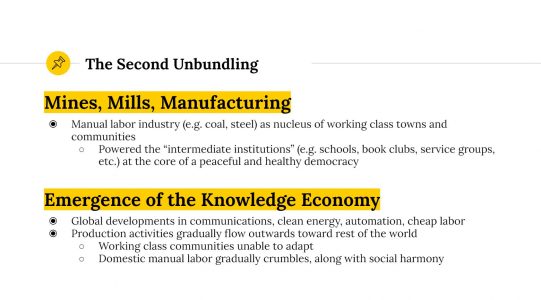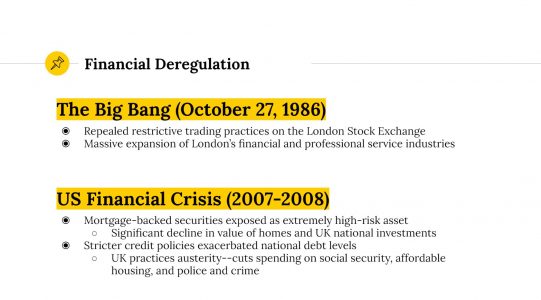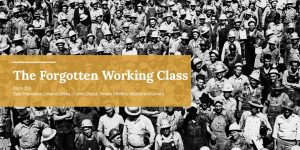Context
The following describes my work on a group presentation for ECON 255 (Understanding Globalization). The class covers the socio-economic implications of lowered barriers to the international flows of information, capital, labour and goods for both rich and poor countries. My group's specific presentation was about the effect of outsourcing, automation, and financial deregulation on working class communities built around manufacturing industries in the US and UK.
My Role
I was in charge of communicating the historical relationship between failing manufacturing towns, and what economists refer to as "The Second Unbundling". This term refers to the period in history where firms began to efficiently separate different segments of the production process across different parts of the world (e.g. a smartphone company locating its Research & Development division in California, but locating Assembly in China or Korea).
I began by choosing two economically comparable countries--the United States and United Kingdom. Specifically, I focused on their shared reliance on manufacturing industries as a source of middle-class employment and economic growth in the 20th century. Beyond that, I highlighted the similar negative effects that emerging industrial economies and a rapidly growing professional workforce had on this middle-class. I showed how those trends contributed to a tangible economic breakdowns for middle-class communities across areas such as London or the Rust Belt. In such cases, the breakdown of social harmony soon followed as demonstrated in instances of hostile political discourse or tribalism. Ultimately, my conclusion was that this middle-class experience of job loss and economic instability can be directly linked to today's conversations around authoritarian populism--a political philosophy which directly appeals to middle-class sensitivties.
Why Do Communities Crumble?

Overview of The Second Unbundling

Aggravating circumstances surrounding The Second Unbundling

How it all ties together
